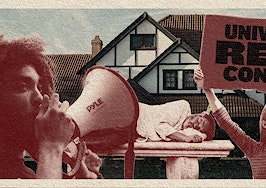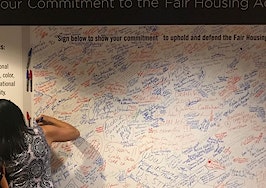If you haven’t watched the Newsday fair housing video, please do, and watch it from beginning to end.
I wish I could say for sure that I have never done anything that isn’t fair housing compliant. I know that if I did, it wasn’t intentional because I do believe in fair housing wholeheartedly.
No one will ever admit to being racist, so I am going to admit that I am racist. I was raised and live in a society where racism has been institutionalized and is baked into our culture. How can I not be just a little racist?
My company has a fair housing policy. The policy is pretty simple: It just says that we follow the law when it comes to fair housing. Considering the large racial disparities in housing and everything else in Minnesota, is my fair housing statement really enough?
It is true that I did not create the problem, but that doesn’t mean I am not part of it or that my fair housing statement doesn’t do anything more than keep the insurance company and others off my back.
Here are some of the ways things can be construed as unfair
As a human being, I can and have made mistakes. It is important for me to learn from those mistakes because I know that my actions can hurt others.
There are some things that most of us do that could easily lead to disparate treatment of consumers and clients. It might not be our intention to discriminate, but discrimination is the end result.
Real estate agents will tell me that they did something because it was in their client’s best interests. That was often used as the “reason” for pocket listings or “in-house” listings. I would argue that both could lead to fair housing violations as the homes are marketed to certain individuals and not to everyone.
There are some townhouses near my home in a kind of exclusive all-white sub-neighborhood where there are rarely homes for sale, or so it seems. When a unit comes on the market, it is withheld from the MLS, and the owners of neighboring townhouses are sent an email that they are instructed to forward to anyone who might be interested in buying the unit.
That is how my clients found out about it. They made an offer as soon as it came on the market. Could that kind of marketing exclude someone who might want to buy one of the townhouses but doesn’t have any friends who currently live there? Are real estate agents merely acting in the best interests of their clients?
In St. Paul, there is a concentration of real estate offices that are large national franchises in two neighborhoods that have the highest home values and are the least diverse in the city. There are a few small independent real estate offices in the other neighborhoods.
Real estate agents used to be taught the importance of being knowledgeable about the schools. Agents often recommended a school district to people who are relocating. I don’t understand how that is different than recommending a neighborhood.
We still encourage agents to be neighborhood experts. I don’t have a problem with that, but as we work with clients, we need to take care that we are not using that expertise for steering.
Make fair housing classes more human centered and compelling
We are required to take fair housing classes every couple of years. I noticed that the Newsday investigation had issues with some of the fair housing classes. It has been my observation that they are more about memorizing the dates that certain laws were passed than they are about practical tips about how to be fair housing compliant.
I’ll be honest, I hate taking the fair housing classes. Thinking about which law is being violated while reading a story about someone looking for housing isn’t helping. We need to look at fair housing in human terms, not in legal jargon terms.
I have plowed through most of the “learning” sections of the National Association of Realtors’ Commitment to Excellence website, and I don’t see a section of fair housing. There isn’t much about fair housing in the Code of Ethics either. If there were fair housing violations, they would also be ethics violations.
Fair housing education for real estate should include more examples of what happens to real people instead of a lot of examples of what a real estate sales agent or rental agent did wrong. It should include more background on redlining, steering and deed restrictions and how they impact current neighborhoods.
We have been providing that kind of training for half a century, and I’ll go out on a limb and suggest that it isn’t working.
Why not examine the lives of people who are looking for housing and who may not even know that the agent they are working with is steering them into a particular neighborhood for their own good? Housing discrimination affects the lives of real people. It isn’t just a bunch of laws we are forced to read up on every other year.
There has to be a way that we can learn to understand why we have fair housing laws and what it is like to be discriminated against. How it feels to work hard and to have fewer opportunities.
Think more about your own motivations and communications
We need to stop before we decide that something is in our client’s best interests or when we want to limit the marketing of a property. We need to stop marketing new construction with pictures of white men and women and their three blond children. The marketing is not a fair housing violation, but it might be sending a message that only white people with children are welcome in this community.
Realtors are uniquely positioned to be part of the solution rather than contributors to housing discrimination. Most of us will deny that we have ever or that we ever would do anything that isn’t fair housing compliant, yet I know that we do.
Even when we get caught, we deny it. Let’s not do that anymore. Let’s start looking at ways we can be part of the solution rather than the problem of institutionalized racism. Let’s go beyond looking at laws and start building an awareness of what fair housing means in human terms.
Teresa Boardman is a Realtor and broker/owner of Boardman Realty in St. Paul. She is also the founder of StPaulRealEstateBlog.com.













